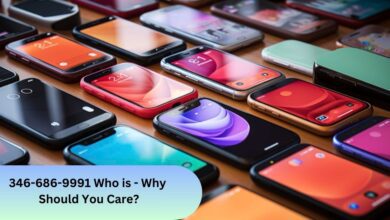Life seems incomplete with technology because it has intricately woven itself into the very fabric of human existence. It influences everything, including the way you communicate or manage your well-being. Although this web of innovation has improved lives in countless ways, it has also brought with it various challenges. So, let’s dive deep into the primary areas where technology impacts daily experiences.
Communication Revolution
Those days of telegram anxieties and handwritten letters are gone. Technology has ushered in a brand-new era of instant communication, and this has forever changed the way people stay connected. From messaging apps like Telegram and WhatsApp to social media platforms like Instagram and Facebook, you can connect with your loved ones across the world in real-time. There are also Google Meet, Zoom, and other video conferencing tools that have revolutionized remote education and work, fostering a sense of connection regardless of physical distance.
However, this instant connectivity has led to information overload. It has also given rise to feelings of isolation. Hence, it is essential to manage your connections and draw boundaries. It is important to be aware of the pros and cons of using the different tools of communication so you can use them effectively.
The Algorithmic Architects Of Your Choices
When it comes to making decisions, information plays a critical role. Recommendation algorithms on popular streaming services, such as Netflix, curate content according to the past behavior and search history of the users. This potentially limits the exposure of users to new experiences. Additionally, social media platforms customize the feeds of users and favors content that reinforces their existing beliefs.
Although these algorithms offer convenience and cater to the preferences of the users, it is critical to be aware of their influence and how they impact privacy and security. This is where VPNs or virtual private networks like Surfshark VPN come to the rescue. It encrypts the Internet traffic and hides your IP address, allowing you to overcome geographical restrictions and access a broad range of online content. Using VPNs can be beneficial for the following:
- Accessing geo-restricted content – Websites and streaming services often limit content according to the location. By using a VPN, you can easily access your favorite websites and shows regardless of your location.
- Improved privacy – VPNs protect one’s online activities from prying eyes, especially when connected to Wi-Fi networks. This is critical when accessing confidential information like online transactions or bank accounts.
- Overcoming censorship – A VPN is an essential tool for accessing content and bypassing censorship.
If you don’t want websites or ISPs tracking your activities, you must carefully choose a VPN provider. The VPN service must have a strict no-logs policy and an extensive network of servers. It is also essential that the service offers a kill switch so that when the connection drops, your data continues to remain secure.
Easily Accessible Information
Thanks to the World Wide Web, you will find all the information you need at your fingertips. Bing, Google, and other popular search engines allow you to research virtually anything you want, from historical trivia to the deepest scientific theories and more. Educational resources and online courses are also available to empower you to develop your skills and learn continuously.
However, the sheer volume of the available information is overwhelming. It means that there is always the risk of fake news making the rounds, trying to convince you they are genuine. You must always evaluate online content before taking any action.
The Advent Of The Sharing Economy
Owing to the ever-evolving technology, the world is witnessing a sharing economy. Here, you can easily lend or rent out your unused resources. Uber, Airbnb, and similar platforms have disrupted traditional industries by providing alternative ways to access transportation and accommodation.
While the sharing economy has given rise to platforms offering economical solutions, it is not without security risks. These concerns are associated with relying on strangers for services or sharing personal belongings with others.
The Transforming Workplace
Workplaces and the way people work have completely transformed due to the influence of technology. For instance, cloud computing allows employees to collaborate and access data on projects regardless of their location. Microsoft Teams, Slack, and other communication platforms facilitate seamless teamwork among remote workforces. Also, there’s the rise of automation that has streamlined various tasks.
While all of this has started a new era in the way people work, it has also brought about concerns. These are concerns regarding job displacement in various sectors. Owing to the evolving workplace demands, continuous learning remains relevant. It is important that people adapt themselves to technological advancements and learn new skills.
The Rise Of The Quantified Self
Fitness trackers and other wearable devices have given rise to the quantified self where people are able to track their sleep patterns, health metrics, and activity levels. These tools motivate people to adopt a healthier lifestyle by offering data-driven insights. But this over-dependence on such data means people are potentially neglecting the subjective aspects of their well-being. Therefore, people need to find a balance and not opt out of their regular meetings with their healthcare practitioners.
Automation
Automation is on the rise that is helping people quickly complete monotonous tasks without human intervention. Virtual assistants and smart speakers have become increasingly common in people’s homes. These devices allow users to control their smart home devices, set reminders, play music or even access information by simply using their voice and giving the right commands.
With these smart assistants, people are able to remotely control their home systems. Yet again, this raises concerns about security vulnerabilities and privacy.
Conclusion: The Lines Between Life And Work Have Become Blurry
Due to technological advancements, the lines between life and work have become extremely blurry. Technology and innovation have made sure that people can reply to messages and access work emails outside of work hours, no matter where they are. This contributes to feelings of stress and burnout. However, technology has also improved accessibility and made life more convenient because everything is at your fingertips.
However, it is important to find a balance so you don’t attract the pitfalls of a technologically-charged world.






